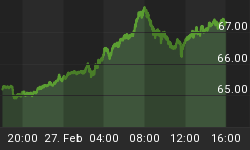Why read: Because Canada's energy resources are a very important part of Canada's landscape and its future. The question addressed is a crucial one.
Commentary: An important question raised by the just announced Nexen deal is: if approved by the Canadian Federal Government will the Nexen deal lead to other transactions in the energy sector (and in other sectors) that will see Canadian ownership and control of other important companies end up in non-Canadian hands?
Any discussion of this topic as it pertains to the Canadian energy sector really needs to center on Canada's oil sands, given the probable long-term world importance of that resource. That said, the answer to that question has to be "that it might well open the foreign ownership door wider than it previously has been opened". The follow-up question is then: is that a neutral, good or bad thing? The answer to that has to be another question: as seen from whose eyes?
My initial observations are that seen:
through Canadian eyes foreign ownership of Canadian located energy assets ought to be seen as somewhat negative, if for no reason other than that change brings uncertainty. At an extreme, Canada would become a country with less control over its own destiny - much like a current developing country looking to attract investment into its resources sector - and would have to rely on influencing its resident energy resources through such things as taxation and 'ownership percentage' legislation;
-
through American eyes foreign ownership of Canadian located energy assets by 'other than Americans' ought to be seen as very negative, given:
-
Canada's geographic proximity;
-
the potential future importance of the oil sands in particular; and,
-
the important trade and societal relationships between Canada and the U.S.
-
A lot of the answer to this from America's perspective presumably has to do with how confident America is that it can become energy self-sufficient going forward, and hence long-term will not be reliant on Canadian and other foreign energy sources;
-
through other country eyes foreign ownership of Canadian located energy assets has to be simply a question of: which Canadian energy assets are strategic to us, can we buy them, and can we buy them now at what in the future likely will prove to be cheap prices?, where:
-
Canadian assets are geographically located in a developed country;
-
Canada has a stable and reasonably balanced parliamentary political system; and
-
Canada has important and positive relationships with the United States - still the world's most important economy.
-
On the world stage, Canada has to be 'right up there' as a good place to invest if you are a foreign country or company with a strategic interest in Canadian resources. In the end, if the Canadian government approves the Nexen deal that certainly may promote the likelihood of other deals happening sooner than they otherwise might have.
Canada, like America, is part of an ever increasingly globalized world. That means:
-
more such deals can be expected - whether Canada approves the Nexen deal or not - and very likely are already be on the drawing boards; and,
-
current and prospective financial market performance may promote deals going forward, particularly if the financial markets suffer in the next months and years should the world economy deteriorate from here.
What better time to buy if you have a 'big bank account' than when prices are low and the target assets are strategic to you?
Context: Economic globalization has changed our world in the past twenty years, and continues to change our world at a pace not focused on or thought about by everyone. Everyone needs to think about economic globalization and its ramifications.
Topical Reference: Nexen deal could mark open season on Canada's energy producers, from The Financial Post, Jameson Berkow, July 24, 2012 - reading time 4 minutes, thinking time longer.















